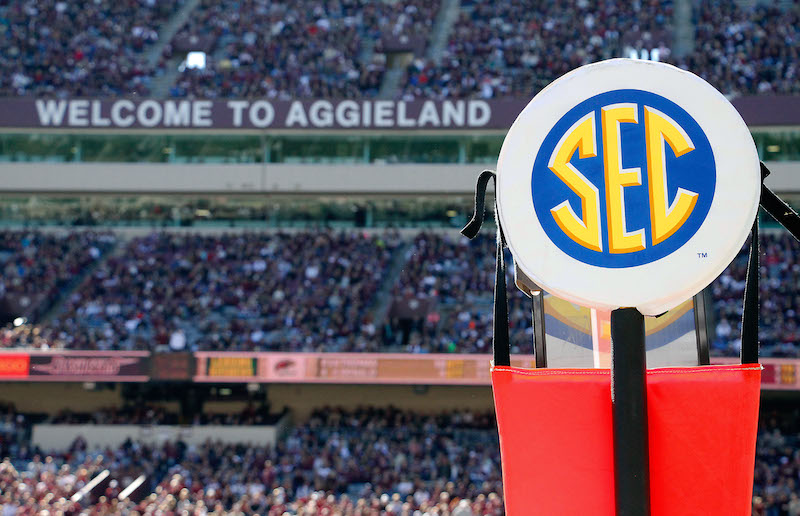'See you in 10 years': SEC schools scheduling far into the future
Last month, Texas A&M scheduled a series with its former Big 12 rival, Colorado. They’re set to play two games against the Buffaloes in 2020 and 2021. The players who will be freshmen in that game haven’t yet started high school.
If you think that’s looking far ahead, it’s nowhere close to the most distant affair on the SEC’s calendars. Tennessee has dates set to play Nebraska in 2026 and 2027, 11 and 12 years out, respectively. Granted, that was pushed back so both teams could add marquee games to their schedules, but you get the picture.
LSU has Oklahoma on its slate in 2027 and 2028, a postponement of a series originally slated for 2017 and 2018 after being scheduled in 2005, a piece of evidence showing that this is not a new practice.
SEC schools, as well as programs all over the nation, are scheduling games farther and farther in the distant future. As it stands today, 11 of the SEC’s 14 members have games on their football schedule for 2020 or later, with Georgia, Kentucky and South Carolina as the only dissenters.
The question all this inspires: Why the rush? For example, look at Arkansas’ series with Michigan, slated for 2018 and 2019 and scheduled in 2012. At the time, Michigan was coming off an 11-2 season in its first year under Brady Hoke, while Arkansas was in its first post-Bobby Petrino season, having come into the season highly ranked.
Athletic directors for both schools likely didn’t foresee the deep valleys both programs would hit in the intervening years, thinking they were scheduling a prominent Big 10-SEC tilt rather than picking a rebuilding program as a future opponent. Both schools have different coaches than the ones in charge when they scheduled the series.
In the ever-shifting world of college football, that’s going to be a common theme as some of the distant series already on the schedule draw closer. Will Butch Jones still be in charge at Tennessee when the Vols travel to Omaha, Neb. in 2026? Will Ole Miss and Georgia Tech still be New Year’s Six contenders when they meet in 2022 and 2023? Eight or ten years is a lifetime in college football, with few coaches and, obviously, no players sticking around at one stop for that long. Even the athletic directors signing these deals know they might not be around when game day arrives.
Despite seemingly gleefully scheduling opponents a decade or more out, athletic directors around the SEC are starting to recognize there might be an issue with the practice.
“I don’t like it at all. I wish we could only go three or four years, that would be fine with me, but we’re kind of stuck in a rut,” LSU athletic director Joe Alleva told ESPN.com recently.
“We all hope to get (to a 2-3 year window),” added Auburn athletic director Jay Jacobs.
However, there is a driving force behind the far-in-advance scheduling. As Alleva went on to say in that piece, ADs are fearful of not filling their schedule and being left scrambling for an opponent.
“I’ve seen some athletic directors that are scrambling to find games, and you don’t want to be scrambling one or two or three years away to find a game and then you end up paying a fortune to buy somebody to play you,” Alleva said to ESPN.
So, in response to those fears, ADs schedule historically strong programs and, as Alleva put it, “hope it works out.”
For now, there doesn’t seem to be a remedy on the horizon. The mandate that Power Five teams must play a school from another Power Five conference each season will bring up the quality of schedules across the country, and it’s not likely to be changed any time soon after just recently being put into effect. With contracts signed for games scheduled out to 2028 in the SEC alone, there’s really nothing to be done for at least a decade.
Let’s just hope that Auburn and Cal can put on a good show for us in 2021.

